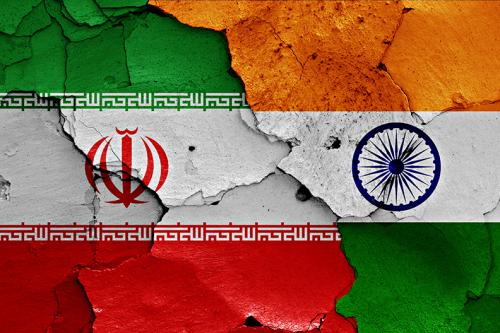In their ambition to grab PCGC, those pushing to convert GoP grant to equity in favour of Karandaaz have forgotten the basic fundamentals of credit guarantee schemes.
Karandaaz through DFID has demonstrated enormous clout on leading newspapers, State Bank of Pakistan, and Ministry of Finance to bypass the rules of business and twist the story as reflected in the half-baked proposal presented to the ECC. However, this does not change the fact that the business model of PCGC has more in common with an insurance company than a bank or DFI and there is hardly a case of a private sector held national CGC in the world. Therefore “apples to oranges” comparisons should be avoided while building a case of private sector ownership due to past failures of state-owned enterprises. We should also not ignore the failure stories of many local and global private financial institutions that led to the 2008 financial crisis.
It is also important for all those who have jumped on the bandwagon to offer GoP’s majority control to Karandaaz, that it is an important strategic policy tool through, which governments around the world seek to address the issue of limited access to SME lending. PCGC, therefore, remains a central policy tool to further various GoPs initiatives to accelerate financing such as low-income housing sector under “Naya Pakistan Housing”, SMEs under “Kamyab Jawan” & export sector under “Made in Pakistan” etc.
It was also noted in the SBP business plan that PCGC’s shareholding structure and a shareholding agreement will play a pivotal role in the determination of the credit rating assigned to this company.
Karandaaz’s capability to take majority control is questionable
Unlike other types of interventions, such as state-owned banks or directed lending arrangements, credit guarantees typically combine a subsidy element with market-based credit allocation mechanisms. Therefore, they may generate fewer distortions in the credit market and may lead to better credit allocation outcomes. This, therefore, begs the question of whether Karandaaz should be allowed to take majority control of PCGC that has a clear development agenda. Such objectives are too critical to be “outsourced” to the private sector, which claims to be pushing a convoluted development agenda that may conflict with GoP’s agenda.
PCGC’s business plan finalized by SBP included in its report that “Karandaaz may also come in as a strategic shareholder to ensure knowledge and network sharing, and reputational advantage, especially with international stakeholders. Karandaaz’s participation will also send a very positive signal to the private sector to come forward and contribute equity to CGC.” Karandaaz however refused this offer despite several attempts to bring them on the PCGC board at the formation stage. Karandaaz was not convinced that investment in PCGC would meet their minimum return expectation from investing in PCGC.
Read more: The controversial takeover of PCGC by Karandaaz
It was also noted in the SBP business plan that PCGC’s shareholding structure and a shareholding agreement will play a pivotal role in the determination of the credit rating assigned to this company. For PCGC to get the AAA rating required to achieve a multiplier of 10 on the equity, two presumptions must hold: 1) MoF to act as the guarantor of last resort through majority shareholding, and 2) PCGC uses up no more than 70% of its surplus capital. In the absence of these two presumptions, the rating process becomes very difficult to define the parameters required to maintain the AAA rating.
Issues surrounding the PCGC controversy
It is also important to note that the World Bank Group published “Principles for the design, implementation, and evaluation of public CGSs” (the Principles) provide us with a globally agreed set of good practices that could help governments around the world establish, operate, and evaluate credit guarantees for SMEs. The Principles are a set of good practices for public credit guarantees covering four key dimensions including independence, corporate governance, and risk management.
In line with these global best practices, PCGC was established with maximum independent directors on its board to avoid issues such as absentee boards, unqualified directors, civil servant creep, and political interference as reasons for the institutional malaise that have caused the failure of most PSE’s in the past. PCGC’s proposed corporate governance structure had 6 out of 9 independent members in line with world-class best practices implemented by leading PSEs. Starting a debate on public vs. private sector control of DFI’s, therefore, is deviating from the core issues that have created this controversy around the takeover of PCGC.
In their ambition to grab PCGC, those pushing to convert GoP grant to equity in favour of Karandaaz have forgotten the basic fundamentals of credit guarantee schemes.
The first core issue highlighted in my previous article is the fact that a spent grant is claimed to be unspent and GoP should carry out a forensic audit to see how much has been spent. However, given the shortage of time GoP should immediately transfer the cash under this facility held back by SBP for no logical reason while audit efforts are pursued in parallel.
The second issue was the claim from DFID to convert the interest accrued on the grant since 2008 into equity setting a wrong precedent that Pakistan cannot afford in such an uncertain global environment for various reasons.
The final issue was the critical need for majority GoP ownership in PCGC to maintain the minimum required rating for an initial period of at least three years. GoP can perhaps follow a transparent privatization process to sell its ownership beyond that initial incubation period.
Strategy for sharing and safeguarding
Another point to be highlighted is the fact that SBP business plan proposed PCGC to act as an aggregator of SME data from all SME focused financial institutions nationwide so it can provide data analytics services to its partner financial institutions. PCGC acting as custodial of the entire SME sector and with a central role in the national SME policy has a responsibility that cannot be outsourced to a private entity.
Tactics adopted by those who believe this transaction should go through are akin to blackmailing the state in surrendering its control of a strategic national asset. GoP should therefore formulate a “National Strategy for SME Information Sharing and Safeguarding” to strike the proper balance between sharing information with those who need it to keep our country safe and safeguarding it from those who would do us harm.
Read more: JS Bank and PMRC sign an agreement to promote affordable housing finance
The author has served as the South Asia Regional Director of ShoreBank International and is one of the chief architects of the Naya Housing, Kamyab Jawan, Made in Pakistan, and the recently announced Ten Billion Tree Honey programs of the Government of Pakistan. Twitter: @ojghani The views expressed in this article are the authors own and do not necessarily reflect the editorial policy of Global Village Space.














